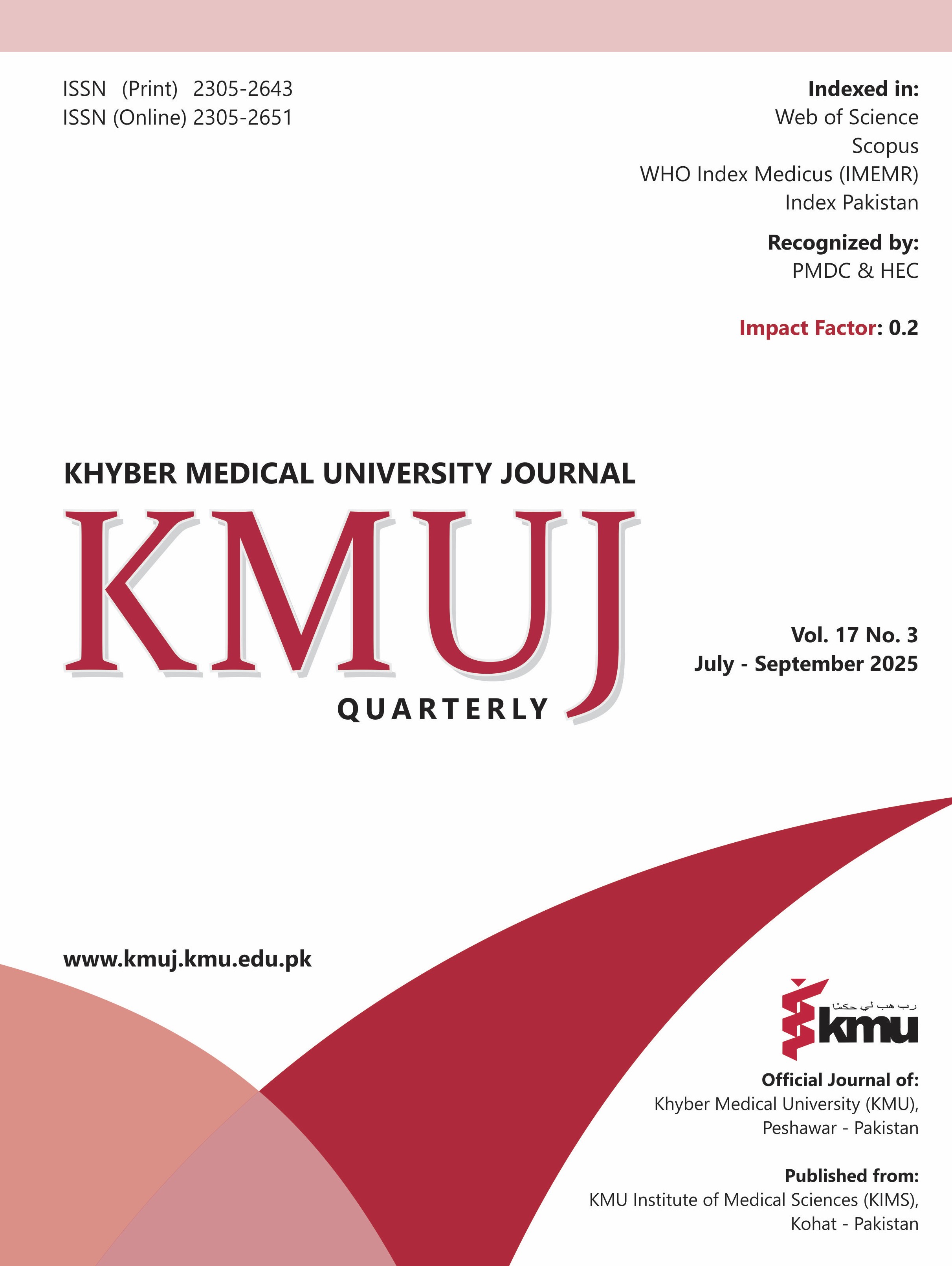Bridging the gap: the need for research mentorship and publication culture in physical therapy education in Pakistan
Main Article Content
Abstract
Research and publications are integral to evidence-based healthcare, yet within Pakistan’s physical therapy education, these elements remain underdeveloped. Although physical therapy programs have grown considerably, faculty often lack advanced research expertise, and students receive limited guidance in project design, critical appraisal, and scientific writing. Consequently, most student theses remain unpublished, representing missed opportunities to strengthen the global evidence base. This viewpoint highlights major gaps in research mentoring and publication culture in Pakistan’s physical therapy programs. It emphasizes the need for structured mentorship, early student engagement in research, and institutional reforms to promote academic productivity. Developing a strong research culture is not only an academic necessity but a professional responsibility that directly influences patient care and the advancement of evidence-based practice. International models demonstrate that investment in faculty development, research capacity building, and collaborative publishing can significantly improve outcomes. Adopting similar strategies in Pakistan could empower students, enhance faculty productivity, and ensure that locally generated evidence informs clinical practice. Strengthening research mentorship and cultivating a publication culture are therefore essential steps to bridge the divide between education and practice, aligning physical therapy education in Pakistan with global standards of healthcare innovation.
Article Details

This work is licensed under a Creative Commons Attribution 4.0 International License.
Work published in KMUJ is licensed under a
Creative Commons Attribution 4.0 License
Authors are permitted and encouraged to post their work online (e.g., in institutional repositories or on their website) prior to and during the submission process, as it can lead to productive exchanges, as well as earlier and greater citation of published work.
(e.g., in institutional repositories or on their website) prior to and during the submission process, as it can lead to productive exchanges, as well as earlier and greater citation of published work.
References
1. Wahid E. Lack of expert research mentorship and publication culture among undergraduate physical therapy programs in pakistan. J Mod Health Rehab Sci 2025:2(3):158.
2. Hanif QAM, Pradhan NA, Hameed W, Zafar B, Khowaja BMH. Insights into the provision of physical therapy services at public sector hospitals in Pakistan: an exploratory qualitative study. BMJ Open 2025;15(4):e084854. https://doi.org/10.1136/bmjopen-2024-084854
3. Khan ZA, Muzzamil U, Ahsan K, Khan A, Jawaid M. Barriers of conducting and completing research in Pakistan among doctors: A cross-sectional survey. Pak J Med Sci 2025;41(3):886. https://doi.org/10.12669/pjms.41.3.10424
4. Bakhshi SK, Abdul Rahim K, Merchant AA, Afzal N, Qadeer Shaikh N, Noorali AA, et al. Barriers to research productivity amongst postgraduate trainees: results from a survey of 333 medical and surgical residents. Postgrad Med J 2023;99(1177):1182-8. https://doi.org/10.1093/postmj/qgad062
5. Afzal A, Saleem H, Iqbal A, Akram A. The barriers to meaningful research in Pakistan and the way forward. Anaesth Pain Intensive Care 2024;28(3):405-7. https://doi.org/10.35975/apic.v28i3.2477
6. Wahid E, Khalil S, Khan MU, Ali A, Tahreem S. Psychological stress and burnout in physical therapy students of pakistan: a growing mental health concern in academia. Healer J Physiother Rehab Sci 2025;5(2):1-4. https://doi.org/10.55735/w4589w63
7. Wahid E AS, Khan M, Ali A, Khalil S. Internship-year exploitation: unpaid internships, excessive work hours, and lack of structured learning in doctor of physical therapy programs in pakistan. Medtigo J Med 2025;3(3):e30623313.. https://doi.org/10.63096/medtigo30623313
8. Mahmood A, Rehman N, Huang X, Riaz I. Barriers to undergraduate medical students’ research engagement in Pakistan: a qualitative exploration. BMC Med Educ 2025;25(1):592. https://doi.org/10.1186/s12909-025-07185-9
9. Azhar A, Qaisar M, Hamid M, Amna M, Tanveer F, Chaudhry MA. Barriers to research perceived by medical students of private medical college, Lahore-Pakistan. Pakistan J Med Health Sci 2023;17(06):5. https://doi.org/10.53350/pjmhs20231765
10. Younis A, Aslam F, Ilyas N, Shahid S, waleed Ahmed M, awais Ahmed M. Knowledge, attitude and barriers of research among post-graduate physical therapists. J Riphah Coll Rehab Scie 2023;11(02)132-8. https://dx.doi.org/10.53389/JRCRS.2023110213
11. Wasim T, Haroon F, Shahid A, Wasim A. Mentees perception of formal mentorship at public sector medical school, Pakistan. Pak J Med Sci 2025;41(2):488. https://doi.org/10.12669/pjms.41.2.11055
12. Hidayat M, Babar S. Medical students'research mentoring program at Central Park Medical College, Lahore, Pakistan. J Ayub Med Coll Abbottabad 2021;33(4):635-40.
13. Waqar U, Rauf H, Qadir MA, Inam H. Path to publication: A peer mentorship model for student-lead surgical research. J Pak Med Assoc 2022;72(Suppl 1)(2):S124-S126. https://doi.org/10.47391/JPMA.AKU-25
14. Sambunjak D, Straus SE, Marušić A. Mentoring in academic medicine: a systematic review. JAMA 2006;296(9):1103-15. https://doi.org/10.1001/jama.296.9.1103
15. Pfund C, House SC, Asquith P, Fleming MF, Buhr KA, Burnham EL, et al. Training mentors of clinical and translational research scholars: a randomized controlled trial. Acad Med 2014;89(5):774-82.
